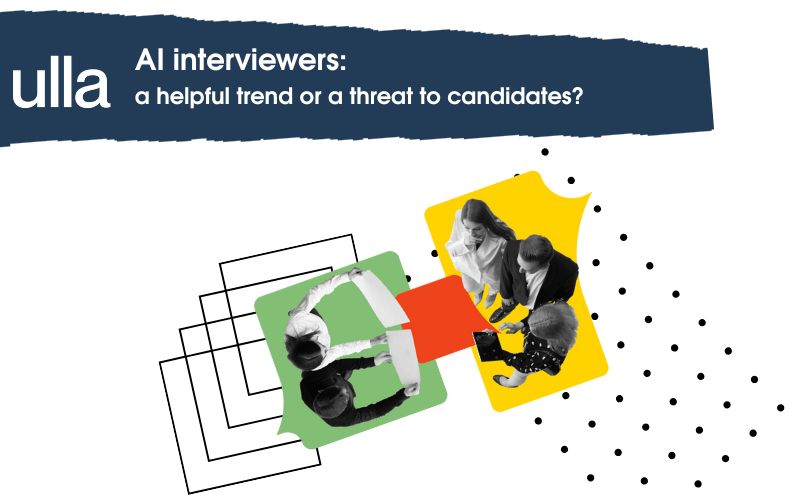AI interviewers: a helpful trend or a threat to candidates?

In 2025, AI interviewers have become more than just a novelty - they’re now a routine part of many companies’ hiring processes. Virtual interviews, where an algorithm rather than a person evaluates the candidate, are no longer surprising. But is this the future of recruitment - efficient and fair?
📈 A trend on the rise
According to research by HireVue, 73% of HR professionals trust AI systems to recommend candidates, and 50% of job seekers believe AI could improve hiring and reduce bias (hirevue.com).
Companies with high-volume hiring needs are already seeing significant time and cost savings. For example, Unilever has reduced its hiring process from four months to four weeks, saving 50,000 hours of work (wikipedia).
⚠️ But there’s a flip side
Despite these benefits, AI interviewers raise concerns about bias and discrimination. A University of Washington study found that large language models preferred names typically associated with white men 85% of the time, while names linked to Black men received no advantage at all (washington.edu).
In Australia, researchers warned that AI interviewers have trouble recognising accents, especially Chinese ones, leading to discrimination against candidates with distinct speech patterns (theguardian.com).
Meanwhile, 43% of Americans report feeling uncomfortable about AI in recruitment, fearing it strips away the human touch and dignity of the interview process (nypost.com).
🧠 Ethical challenges and the need for transparency
Many AI systems work as “black boxes” - candidates and recruiters can’t see how decisions are made. This lack of transparency makes it difficult to challenge outcomes or get meaningful feedback. In the US, laws are already emerging to demand more transparency and auditing of AI hiring tools (washingtonpost.com).
🤝 An alternative: AI as an Assistant, Not a Judge
Rather than replacing people in decision-making, AI can support HR professionals by automating repetitive tasks. For example, Ulla doesn’t judge candidates - it captures key points from interviews and helps HR professionals avoid missing important details.
Beyond recruitment, Ulla also proves invaluable for HR teams during employee onboarding and in meeting analytics, helping them improve team engagement and streamline collaboration.
And crucially, Ulla is designed with security at its core: it can be deployed locally on your servers, ensuring that sensitive conversations and data never leave your trusted environment.
AI interviewers can be useful tools, but it’s crucial to use them responsibly, with ethics and fairness in mind. A balanced approach - where AI supports, not replaces - might be the key to effective, equitable hiring. And while AI interviewers might still raise eyebrows, tools like Ulla show that the real promise of AI is in making HR smarter, more secure, and more human.
✨ Try Ulla

Posted in Use Cases on Jun 04, 2025.







